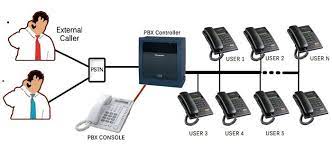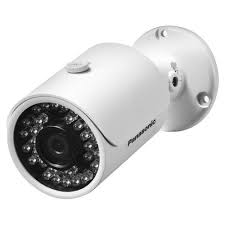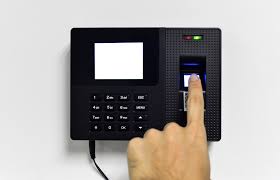Intercom System: Enhancing Communication and Security
In today’s fast-paced world, effective communication is essential for smooth operations in various settings, be it residential complexes, office buildings, educational institutions, or healthcare facilities. One technology that has revolutionized communication within these spaces is the intercom system.
An intercom system is a communication device that allows individuals to communicate with each other through a network of interconnected devices. It consists of a central unit that controls the system and multiple stations placed strategically throughout the premises. These stations can be wall-mounted or handheld devices with speakers and microphones.
One of the primary advantages of an intercom system is its ability to facilitate quick and convenient communication. Whether it’s conveying important messages to all residents in a housing society or coordinating tasks among employees in an office building, an intercom system ensures efficient and reliable communication without the need for physical movement.
In residential complexes, intercom systems provide added security by allowing residents to verify visitors before granting them access. By connecting the main entrance to individual apartments or houses, residents can conveniently communicate with visitors without compromising their safety. This feature is particularly valuable in gated communities or high-rise buildings where controlling access is crucial.
Intercom systems also find extensive use in commercial settings such as offices and educational institutions. They enable seamless internal communication between different departments or classrooms, making coordination and collaboration more efficient. With just a push of a button, employees can communicate with their colleagues across different floors or teachers can address students throughout the school premises.
Moreover, intercom systems have evolved over time to incorporate advanced features that enhance security further. Integration with video surveillance systems allows users to not only hear but also see the person at the door before granting access. This adds an extra layer of protection against unauthorized entry and potential threats.
In healthcare facilities such as hospitals and clinics, intercom systems play a vital role in ensuring effective communication between staff members, patients, and visitors. Doctors can easily reach out to nurses or other medical professionals in case of emergencies or urgent situations. Patients can also communicate their needs or concerns to the nursing staff without having to physically leave their rooms.
Furthermore, intercom systems can be integrated with other security systems like access control and alarm systems. This integration provides a comprehensive security solution, allowing for centralized monitoring and control of various security aspects within a premises.
In conclusion, intercom systems have become an indispensable communication tool in various settings, offering convenience, efficiency, and enhanced security. Whether it’s managing access control, coordinating tasks among employees, or ensuring quick communication during emergencies, an intercom system is a valuable investment that streamlines operations and fosters a safe and secure environment.
9 Frequently Asked Questions About Intercom Systems: Everything You Need to Know
- What are the benefits of an intercom system?
- How does an intercom system work?
- What features should I look for in an intercom system?
- How much does an intercom system cost?
- Is it easy to install an intercom system?
- Are there wireless options for an intercom system?
- Can I use my existing phones with a new intercom system?
- Is it possible to integrate my existing security cameras with a new intercom system?
- Do I need special wiring for installing an intercom system?
What are the benefits of an intercom system?
An intercom system offers several benefits in various settings. Here are some of the key advantages:
- Enhanced Communication: Intercom systems facilitate quick and convenient communication within a premises. Whether it’s between residents in a housing society, employees in an office building, or staff members in a healthcare facility, intercoms provide seamless communication without the need for physical movement.
- Increased Security: One of the primary benefits of an intercom system is improved security. By connecting the main entrance to individual apartments or houses, intercoms allow residents to verify visitors before granting them access. Integration with video surveillance systems adds an extra layer of security by enabling users to see and hear the person at the door.
- Convenience and Efficiency: With an intercom system, individuals can communicate with each other effortlessly, saving time and effort. In commercial settings like offices or educational institutions, intercoms enable efficient coordination and collaboration between different departments or classrooms.
- Emergency Communication: Intercom systems play a crucial role in emergency situations. They allow for quick communication during emergencies or urgent situations, ensuring that relevant personnel can be reached promptly for assistance or action.
- Integration with Other Systems: Intercom systems can be integrated with other security systems such as access control and alarm systems. This integration provides a comprehensive security solution, allowing for centralized monitoring and control of various security aspects within a premises.
- Privacy and Peace of Mind: In residential complexes, intercoms provide privacy by allowing residents to communicate with visitors without physically opening doors or gates. This feature adds peace of mind by ensuring that only authorized individuals gain access to the premises.
- Accessibility Features: Some intercom systems offer accessibility features such as hands-free operation or compatibility with hearing aids, making them inclusive for individuals with disabilities.
- Cost-Effective Solution: Compared to traditional methods of communication like phone calls or physical movement between locations, intercom systems offer a cost-effective solution. They eliminate the need for multiple phone lines or additional staff for communication purposes, resulting in potential cost savings.
Overall, an intercom system offers numerous benefits including enhanced communication, increased security, convenience, efficiency, emergency communication capabilities, integration with other systems, privacy, accessibility features, and cost-effectiveness. These advantages make intercom systems a valuable investment in various settings.
How does an intercom system work?
An intercom system works by establishing a communication network between multiple stations or devices within a premises. Here is a general overview of how an intercom system operates:
- Central Unit: The intercom system is controlled by a central unit, also known as the master station or control panel. This unit serves as the hub of the system and manages the communication between different stations.
- Stations: The premises are equipped with various stations that can be wall-mounted or handheld devices. These stations typically consist of speakers, microphones, and buttons for initiating and receiving calls.
- Wiring or Wireless Connectivity: Intercom systems can be wired or wireless, depending on the type of installation. Wired systems use physical cables to connect the central unit with each station, while wireless systems use radio frequency signals to establish communication.
- Communication Protocol: When a user wants to communicate with another station, they press the designated button on their device to initiate a call. This sends a signal to the central unit, which then establishes a connection with the desired station.
- Two-Way Communication: Once the connection is established, users can engage in two-way communication by speaking into the microphone and listening through the speakers on their respective devices. This allows for clear and real-time conversation between stations.
- Additional Features: Depending on the complexity of the intercom system, there may be additional features available such as video integration, door access control, call forwarding, and group calling capabilities.
- Integration with Other Systems: Intercom systems can often be integrated with other security systems such as video surveillance cameras, access control systems, or alarm systems. This integration allows for enhanced functionality and centralized control over multiple security aspects within a premises.
It’s important to note that specific details may vary depending on the brand and model of the intercom system being used. However, these general principles apply to most intercom systems and provide an understanding of how they operate to facilitate communication within a premises.
What features should I look for in an intercom system?
When choosing an intercom system, it is important to consider the specific needs and requirements of your setting. Here are some key features to look for:
- Audio and Video Quality: Ensure that the intercom system provides clear and crisp audio and video transmission. This is especially important for systems integrated with video surveillance, as it allows for better identification of visitors.
- Expandability and Scalability: Look for a system that can easily expand as your needs grow. Consider whether you may need to add more stations or integrate additional features in the future.
- Integration Capabilities: Check if the intercom system can integrate with other security systems such as access control, CCTV cameras, or alarm systems. Integration allows for centralized control and monitoring, enhancing overall security.
- Mobility and Flexibility: If mobility is important in your setting, consider wireless or mobile intercom options. These allow users to communicate from anywhere within the premises without being tied down to a fixed station.
- Ease of Use: The intercom system should have a user-friendly interface that is intuitive and easy to operate for all users, including non-technical individuals.
- Range and Coverage: Evaluate the range of the system to ensure it covers the desired area effectively without any signal degradation or interference.
- Durability and Weather Resistance: If the intercom system will be installed outdoors or in harsh environments, choose weather-resistant models that can withstand various weather conditions.
- Power Backup: Look for an intercom system that has a power backup option such as battery backup or support for alternative power sources like solar energy. This ensures uninterrupted communication during power outages.
- Two-Way Communication: Ensure that the intercom system supports two-way communication so that both parties can speak and listen effectively.
- Security Features: Consider additional security features like door release controls, PIN code access, or fingerprint recognition if you require enhanced access control capabilities.
- Integration with Phone Systems: Some intercom systems offer integration with phone systems, allowing calls to be forwarded to mobile devices or landlines, ensuring communication even when users are away from the premises.
- Support and Maintenance: Check the availability of technical support and maintenance services for the intercom system. It is important to have reliable support in case of any issues or upgrades.
By considering these features, you can select an intercom system that best fits your specific needs, ensuring effective communication and enhanced security within your premises.
How much does an intercom system cost?
The cost of an intercom system can vary depending on several factors such as the type of system, the number of stations required, the features and functionalities desired, and the complexity of installation.
For basic residential intercom systems with a few stations, the cost can range from around $100 to $500. These systems typically offer simple audio communication between stations and may not have advanced features like video integration or smartphone connectivity.
Mid-range intercom systems with additional features such as video monitoring capabilities, integration with access control systems, or smartphone connectivity can cost anywhere between $500 to $1500. These systems provide more advanced functionalities and are suitable for both residential and commercial settings.
For larger commercial or institutional setups that require extensive coverage and advanced features like centralized control, integration with security systems, or multi-channel communication, the cost can range from $1500 to several thousand dollars. The price will depend on factors such as the number of stations needed, the complexity of installation, and customization requirements.
It’s important to note that these price ranges are approximate estimates and can vary based on factors specific to each installation. To get an accurate cost estimate for an intercom system tailored to your needs, it is recommended to consult with professional security system providers or contact suppliers for detailed quotations.
Is it easy to install an intercom system?
Installing an intercom system can vary in terms of complexity depending on the specific system and the premises where it will be installed. Here are some factors to consider when assessing the ease of installation:
- Wired vs. Wireless: Intercom systems can be either wired or wireless. Wired systems require running cables between the central unit and individual stations, which may involve drilling holes and routing cables through walls or ceilings. This can be more time-consuming and require professional assistance, especially in existing buildings. On the other hand, wireless intercom systems eliminate the need for extensive wiring, making them easier to install as they typically require minimal setup.
- System Integration: If you plan to integrate the intercom system with other security or communication systems, such as access control or video surveillance, the installation process might become more complex. It may involve additional wiring and configuration to ensure seamless integration between different components.
- Existing Infrastructure: The ease of installation also depends on the existing infrastructure of your premises. If you have a new construction project or a building with structured cabling in place, installing a wired intercom system might be relatively straightforward since there are already designated pathways for cables. However, retrofitting an older building without pre-existing infrastructure could present challenges that require professional expertise.
- DIY vs. Professional Installation: Some intercom systems are designed for easy do-it-yourself (DIY) installation, providing user-friendly instructions and simple setup processes that don’t require technical expertise. These systems often come with plug-and-play features or wireless connectivity options that make installation hassle-free for users without prior technical knowledge. However, for more complex installations or larger-scale projects, it is advisable to seek professional assistance from experienced technicians who can ensure proper setup and configuration.
- System Complexity: The complexity of the intercom system itself can impact installation difficulty. Basic audio-only intercom systems tend to be simpler to install compared to more advanced systems with video capabilities, touchscreen interfaces, or integration with other devices. More advanced features may require additional setup steps and configuration.
In summary, the ease of installing an intercom system can vary depending on factors such as the type of system (wired or wireless), integration requirements, existing infrastructure, and the complexity of the system itself. While some systems are designed for easy DIY installation, others may require professional assistance to ensure proper setup and functionality. It is recommended to carefully review the installation instructions provided by the manufacturer or consult with a professional installer to determine the best approach for your specific situation.
Are there wireless options for an intercom system?
Yes, there are wireless options available for intercom systems. Wireless intercom systems offer the advantage of flexibility and ease of installation, as they do not require extensive wiring throughout the premises. These systems use wireless technology such as radio frequencies or Wi-Fi to establish communication between stations.
Wireless intercom systems are particularly beneficial in situations where running cables is impractical or challenging, such as in existing buildings where retrofitting may be difficult. They are also ideal for temporary setups or locations where portability is required, such as construction sites or outdoor events.
With wireless intercom systems, users can communicate between stations without the need for physical connections. They typically consist of handheld devices or wall-mounted units with built-in speakers and microphones. Some advanced wireless intercom systems even offer additional features like video monitoring and integration with other security devices.
The range of wireless intercom systems can vary depending on the specific model and technology used. Some systems have a limited range suitable for small-scale applications within a building, while others offer extended ranges that can cover larger areas or multiple buildings within a complex.
It’s important to consider factors like signal strength and potential interference when choosing a wireless intercom system. Factors like distance, walls, and other obstacles can affect the quality and range of communication. Therefore, it’s recommended to select a system that matches the specific requirements and layout of your premises.
Wireless intercom systems provide the same benefits as their wired counterparts in terms of efficient communication and enhanced security. They offer convenience, mobility, and ease of use while maintaining reliable communication channels within residential complexes, offices, schools, healthcare facilities, and other settings.
When considering a wireless intercom system for your needs, it’s advisable to consult with professionals who specialize in security solutions to ensure you choose a system that meets your specific requirements while providing optimal performance and reliability.
Can I use my existing phones with a new intercom system?
Yes, in many cases, you can use your existing phones with a new intercom system. This is possible through the integration of a feature called “phone-to-intercom” or “phone-to-IP intercom” functionality.
With this feature, your existing phones can be configured to act as intercom stations, allowing you to communicate with other intercom devices within the system. This integration eliminates the need for separate intercom handsets or devices, making it a cost-effective solution.
To enable phone-to-intercom functionality, your existing phones need to be compatible with the intercom system’s protocols and standards. Common protocols used in intercom systems include Session Initiation Protocol (SIP) and Voice over Internet Protocol (VoIP). These protocols allow for seamless communication between different devices over an IP network.
By connecting your existing phones to the IP network that supports the intercom system, you can utilize their functionalities as intercom stations. This means you can make and receive audio calls, access door entry systems, and communicate with other intercom devices using your familiar phone interface.
It’s important to note that compatibility may vary depending on the specific make and model of your existing phones and the intercom system you choose. It is advisable to consult with a professional installer or provider of the new intercom system to ensure compatibility and proper configuration.
By leveraging your existing phones as part of a new intercom system, you can maximize their utility while benefiting from enhanced communication capabilities within your premises.
Is it possible to integrate my existing security cameras with a new intercom system?
Yes, it is possible to integrate existing security cameras with a new intercom system. Integration between the two systems can provide enhanced functionality and convenience.
To integrate your existing security cameras with an intercom system, you will need to ensure compatibility between the two systems. It is important to choose an intercom system that supports integration with various camera types and brands. This compatibility ensures seamless communication and control between the intercom system and your security cameras.
Once you have selected a compatible intercom system, you will need to connect your existing security cameras to the intercom system’s network. This can typically be done by connecting the cameras to the same local area network (LAN) as the intercom system. Depending on the specific requirements of your intercom system, you may need additional hardware or software for integration.
Once integrated, you can enjoy several benefits. For example, when someone rings your doorbell or approaches a monitored entrance, not only will you be able to communicate with them through the intercom system, but you will also have visual access to see who is at the door or gate via your existing security camera feed. This combination of audio and video communication enhances both convenience and security.
Additionally, integration allows for centralized monitoring and control of both the intercom system and security cameras. You can view live camera feeds directly from within the intercom system’s interface or even receive notifications on your mobile device when motion is detected by a camera.
Integration also enables advanced features such as video recording during intercom conversations or triggering specific actions based on camera events. For instance, if a camera detects motion in a restricted area, it can automatically activate an alert on the intercom system or send notifications to designated personnel.
It’s important to consult with professionals who specialize in integrating security systems to ensure proper installation and configuration for optimal performance. They can guide you through the process of integrating your existing security cameras with a new intercom system based on your specific requirements and the capabilities of the systems involved.
Overall, integrating your existing security cameras with a new intercom system can provide a comprehensive and seamless security solution, offering both audio and visual communication capabilities for enhanced convenience and peace of mind.
Do I need special wiring for installing an intercom system?
Installing an intercom system typically requires some wiring, but the extent of wiring needed may vary depending on the type of intercom system you choose. Here are a few considerations regarding wiring for intercom installation:
- Wired Intercom Systems: Traditional wired intercom systems usually require dedicated wiring to connect the main unit with individual stations or room units. This involves running cables through walls, ceilings, or conduits to establish communication between different points. The wiring may include power cables and communication cables, such as twisted pair or coaxial cables.
- Wireless Intercom Systems: Wireless intercom systems offer an alternative to traditional wired systems and eliminate the need for extensive wiring. These systems utilize wireless technology, such as Wi-Fi or radio frequencies, to transmit audio and sometimes video signals between devices. While they still require power sources for each device, they do not require physical cabling between units.
- Retrofitting Options: If you are considering installing an intercom system in an existing building where running new wires may be challenging or impractical, there are retrofitting options available. Some intercom systems can utilize existing electrical wiring within the building for communication purposes. These systems leverage powerline communication technology to transmit audio signals over the electrical lines.
- Professional Installation: To ensure proper installation and minimize any potential issues with wiring, it is advisable to consult with a professional installer experienced in intercom systems. They can assess your specific requirements and provide guidance on the most suitable system for your needs while addressing any wiring considerations.
It’s important to note that the complexity of wiring may vary depending on factors such as the size of the premises, number of stations/units required, desired features (audio-only vs audio-video), and whether it is a new construction or retrofitting an existing space.
Before proceeding with any installation, it’s recommended to consult with a qualified installer who can evaluate your specific needs and provide appropriate guidance regarding the necessary wiring requirements for your intercom system.





Great work! That is the kind of information that should be shared around the internet.
Disgrace on the search engines for now not positioning this post upper!
Come on over and seek advice from my site . Thanks =)
Thank you for your positive feedback! We’re glad you found the information valuable. Intercom systems are indeed essential for enhancing communication and security in various settings. Feel free to visit our site for more insights on this topic. Your support is greatly appreciated!